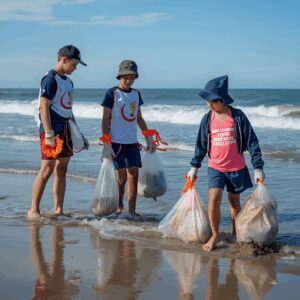CARICOM silent on CWI and the Summer Olympics
At the international level, there is an ongoing discussion with regard to the engagement of cricket on the sport programme of the quadrennial Summer Olympic Games for Los Angeles, California, USA, in 2028. The International Cricket Council (ICC) is yet to determine the system for teams to qualify for the Olympic competition, both male and female. What they have announced is that there will be a maximum of six teams in either gender grouping. Team ranking is expected to play a role in the final decision regarding participating teams.
We are at a juncture where a case has to be made for Cricket West Indies to be assured that the ICC puts in place a qualiofication system that is fair and equitable for all of the organisation’s members across the world. This is a fight that requires the engagement of all peoples of the Caibbean for whom cricket is much more than just a sport. It is an integral part of who we have come to be as a people and region. It is part of what defines us.
The Olympic Mandate
The International Olympic Committee (IOC) owns the Olympic Games. It stipulates in the O>lympic Charter, the rules of membership as well as those of the Olympic Games.
Over the decades of its existence, the IOC has developed and constantly reviewed the sports programme of the Olympic Games, which identifies the sports that would be conducted in any given edition of the global sport spectacle.
Just as the IOC has stipulated criteria for selection of its own members and for National Olympic Committees (NOC) to become affiliated to itself, so too, it has established criteria for sports to be included on the sports programme of its Olympic Games. Over the decades of the Games being held the number of sports in any given edition has changed, with a slew of reasons proferred for dong so.
In the case of the Summer Olympics, the norm, for many years, have been restricted to 28 sports. However, it was also the case that some sports had, over time, increased the number of disciplines in which competitions were held, gradually increasing the number of athletes per sport. Following the Seoul Olympics of 1988, the IOC placed a cap on the number of athletes at future editions at 10,000, citing fears of rising costs of hosting the Games and the impact this might have on the number of nations desirous of. hosting them in the future. Of course such a decision also necessitated the imposition of quotas on the 28 sports, itself a bone of contention.
It did not take long for the IOC to agree periodic reviews of the Sport Programme of the Games, in order to maintain relevance and appeal in a rapidly changing world and the emergence of the attention economy and its impact on revenues of sport competitions in particular. Some sports that were once considered fixtures on the Summer Olympics sport p/rogramme found themselves removed, replaced by others that emerged as more appealing to contemporary youths and capable of generating significant revenues through an increasing array of media.
Additionally, we also saw several existing sports, fearful of being among those considered for replacement, hasten to explore innovative options to their sport, spawning new, more popular disciplines. Beach Volleyball with only two athletes need to complete a team, Rigby 7 was a much more compact and very fast game and so too Basketball 3 x 3, are just a few wirth mentioning here.
A few years ago, the IOC adopted a new strategy of having the host nation include up to four additional sports that are deemed particularly relevant and appealing to its population. This brings us to where we are today. When Los Angeles bid for the Summer Olympics of 2028, it chose cricket, flag football, lacrosse and squash as its additional sports.
Cricket has, thanks to England’s intrduction of the T20 version and the remarkable marketing iof the Indian Premier League, grown exponentially across traditional cricketing nations but has also become so popular, globally, that it rivals many sports in revenue generated from the sale of access rights to competitions. Although the sport is still relatively small in terms of member federations around the world, its’ revenue-generating capacity and aggressive marketing have given rise to competitions of the shortest variety, in an ever-increasing number of countries. It is noew among the fastest growing sports in the world.
Cricket West Indies and the Olympics
For us the peoples of the Caribbean, sports has been for decades the embodiment of our aspiration to be genuinely stand proudly on our own feet as nations, amongst the independent countries of the world, no less capable of being considered equal.
Cricket first announced the existence of Caribbean peoples to the international community as our players rose from under the feet of the colonisers to distinguish themselves in a sport not of our making but which we have some to master as well as any other peoples.
Athletics allowed our athletes to showcase our abndant talent, matching strides with and often defeating those considered the best in the world. We have made it to the Football World Cup and have inspired successive generations of children to feel confident of their abilities to compete well in almost every field of endeavour.
While no doubt the achievements of our Nobel laureats have made our region widely known, our sporting successes have legitimised our commitment to excellence, being acknowledged in nations to whom we were hitherto unknown.
It is therefore only appropriate that once the discussion began about the sport of cricket’s inclusion on the sport programme of the LA28, CWI would have been at the forefront of our involvementr. This is the reason that the Caribbean Association of Nationl Olympic Committees (CANOC) joined forces with CWI in supporting the ICC’s engagement with the Organising Committee of LA28.
Getting cricket on the sport programme in LA is only part of the process. We all want to see our athletes on the cricket field of the Olympic stage. LA is just the starting point. The hope is that Brisbane 2032 would follow and all future editions of the Summer Olympics thereafter.
Qualifying for LA28
In a recent official letter to the leadership of the ICC, dated 12 May 2025, Chris Dehring, CEO of Cricket West Indies, wrote, ‘The Olympic dream remains the Lodestone for attracting grassroots talent and national investment in most sports, with national pride and the socio-political return proven enablers… Cricket returning to the Olympic Games in LA 2028 is therefore a paradigm opportunity to bolster both West Indies and international cricket in the Americas. Cricket West Indies is resolute that once we earn the right, we cannot be excluded.’
CWI therefore argues that ‘The Olympic Charter mandates that qualification systems for the Olympic Games must be fair and transparent, outlined in the Bye-law to Rule 40…This is intended to ensure that all qualification processes are consistent with the principles of fairness and equality upheld by the Olympic Movement. Additionally, the IOC has established Qualification System Principles to guide IFs in developing their qualification systems. These principles emphasize that qualification systems must allow the participation of the best athletes through a fair and transparent process within the framework of the Olympic Charter.
CWI therefore put two options on the table of the ICC:
Option 1: Based on ICC T20 Ranking as at _______________, and considering the automatic qualification of USA.
The ICC rankings can be used to determine the 10 qualified teams (5 male and 5 female) to represent the sport in Los Angeles. On this basis, were West Indies teams be ranked in the top 5 as of this date, then CWI will have the right to be represented at the Olympic Games by one of its member countries with recognized Olympic standing. It is our intention that should this materialize, CWI will stage a special Olympic qualifying T20 tournament amongst its member countries with recognized Olympic status to select and award a place at the LA Olympics to represent the earned qualification of the West Indies.
Option 2: ICC Olympic Qualification Process
For a more transparent and inclusive process, ICC could stage a global Olympic Qualification process that allows for wider participation and opportunity:
5 qualification spots to be assigned to the top 5 ICC ranked teams (other than the West Indies) by a specified date
Regional qualifiers will be staged to determine the Regional Qualifier from each of the five (5) ICC Developmental Regions: Africa, Americas, Asia, East-Asia-Pacific and Europe, plus one from the West Indies. Only countries that have recognized National Olympic Committees with cricket as a recognized sport will be permitted to compete.
The 6 teams (5 regional qualifiers, plus one from the West Indies) will play in an ICC Olympic Playoff to determine a winner and the 6th spot in the Olympics.
Before CWI has received a respons eregarding its submission on the qualification system, CWI has had cause to communicate with the ICC its concern over the contents of an ESPNCricinfo article dated 28 May 2025, that reads in part, ‘“According to an ECB spokesperson, an agreement in principle with the ICC is already in place”.
The qualification process has yet to be established for what is expected to be a six-team tournament. However, it has already been agreed that England’s men’s and women’s teams would be the qualification vehicle for Team GB, with the Scotland and Northern Ireland players available thereafter.’
Dehring, on behalf of CWI therefore penned, ‘If the article is accurate and the ICC has “agreed” a special exception for the ECB, then we would expect a similar principle to be applied in the case of the West Indies whose member countries participate in the Olympics individually. Indeed, this would simply be a case of different sides of the same coin.’
Rally around CWI
There is reason enough for us as Caribbean people, whether we love cricket or not, to rally in support of the CWI’s stance on insisting fir the application of a qualification system that is fair and equitable. They are not asking for any special favours to be grudgingly handed to them that could be considered favouritism.
CWI is essentially seen as proposing that it must count for something that our men’s team is currently ranked fifth and the women, sixth, in the ICC. This is good reason for the latter to weigh heavily in favour of the option of allowing or an internal competition to be held to yield the individual team to join the competition in LA28.
It is unacceptable for Team GB to receive what, if the report is true, would in essence constitute a form of special treatment. It would therefore be considered grossly unfair if that is allowed to happen and the same consideration of ‘fairness’ is not offered to the West Indies. We, in the Caribbean, must join the organisation’s president, Kishore Shallow, in reminding the ICC, the Olympic Movement and the world, ‘The Caribbean has always punched above its weight at the Olympics, inspiring the world with our athletic brilliance. Cricket’s return to the Games in 2028 must not exclude our young cricketers from the same dream that has inspired our athletes.’






